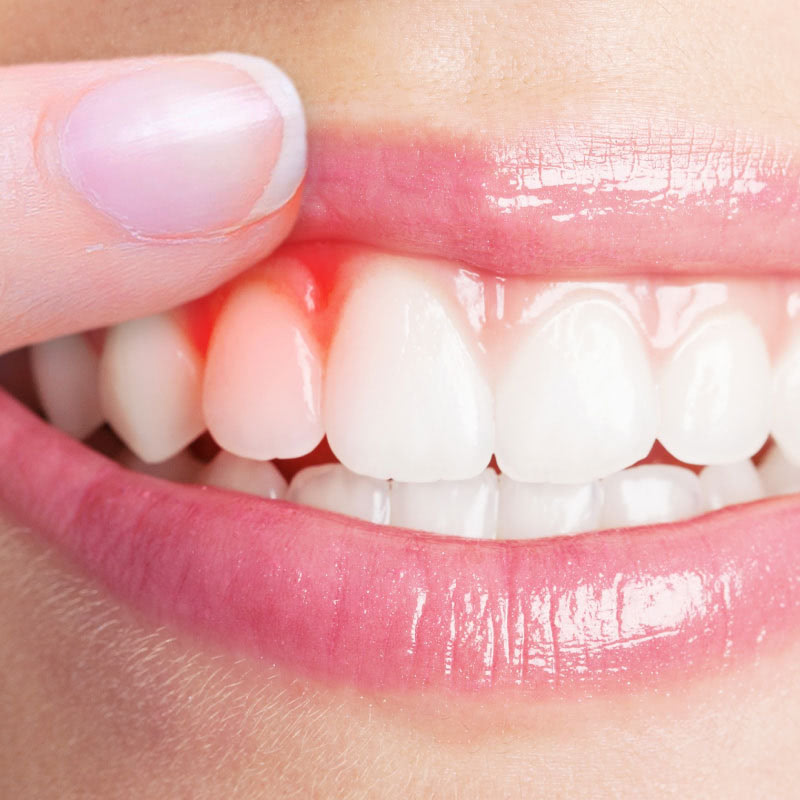Do I Have Gum Disease?
You may have gum disease if you are experiencing any of the following:
- Bleeding gums
- Red, swollen gums
- Painful gums
- Your teeth are starting to move
- Loose teeth
- Bad breath
You may have gingivitis if your gums become red and swollen, and bleed when brushing your teeth. Gingivitis can be reversible with good oral hygiene, brushing and flossing.
Periodontitis occurs when gingivitis is left untreated and progresses. The bone structure surrounding the teeth may be damaged as well. Advanced periodontitis may mean advanced bone loss, resulting in loose teeth which may cause pain, discomfort and be indicated for removal.
Periodontitis is irreversible, and management involves maintenance of current severity of the periodontal disease, or slowing down the rate of progression of periodontitis.
What causes gum disease?
Both forms of gum disease are commonly caused by inadequate oral hygiene as plaque accumulates on the teeth. Once hardened, plaque becomes tartar which cannot be removed by brushing alone- a professional clean will be required.
Other factors that may cause gum disease include:
- Smoking and substance usage
- Diabetes and other immunocompromising medical conditions
- A genetic predisposition
- Hormonal changes during pregnancy
Our experienced dentists will assess and determine the cause of your gum disease.
Gum disease treatment
If you have gingivitis, better oral hygiene can help, including brushing and flossing in between your teeth. Your teeth and gums may also need professional clean by our dentists.
If you have periodontitis, the treatment may involve managing the symptoms and reducing further damage as much as possible.
One of the common treatments for periodontitis is a professional clean by our experienced local dentists. Deep clean (cleaning below the gums) may be needed and is usually done with local anaesthesia.
Gum treatment recovery process
It is common to experience some tenderness and sensitivity after gum treatment. The gums may be bleeding more for the first week. You should continue brushing and flossing even though the gums are bleeding.
Avoid hot and cot stimuli and saltwater rinses will help. Soft foods may be recommended for the first week.
Risk and Complications
Tooth Loss
Sometimes, if the periodontal disease is at an advanced stage, professional clean, deep clean may no longer be viable options to save the teeth, resulting in potential tooth loss. Our dentists will assess this and determine suitable options that meet your dental needs.
Swollen or red gums
Swollen, red, or tender gums may continuously occur even after gum treatment, depending on the severity of the gum disease.
Chronic bad breath
Bad breath, or halitosis, occurs often with gum disease due to byproducts in the form of gases released by the bacteria on and in between your teeth. Gum treatment may help reduce halitosis but the multifactorial condition may still persist.
Gum Treatment at Geelong West Dental
We believe in prevention and early detection through comprehensive check up and clean
Treatment varies according to your state of gum disease.
Every patient has different concerns and dental experience.
At Geelong West Dental, we understand the anxiety that patients may have with gum treatment and we are here to address your concerns.
Photo is stock image only.
Speak to our friendly team on
(03) 5200 9137
We are conveniently located at
43 Pakington Street, Geelong West.
